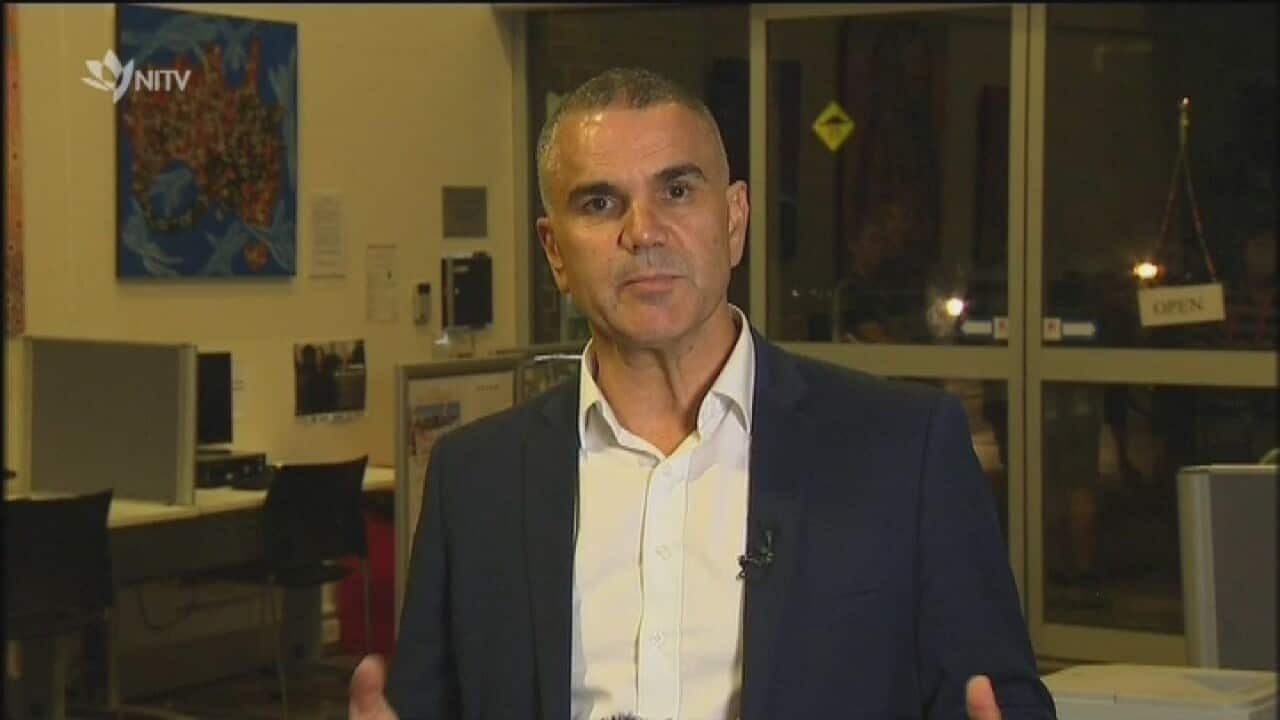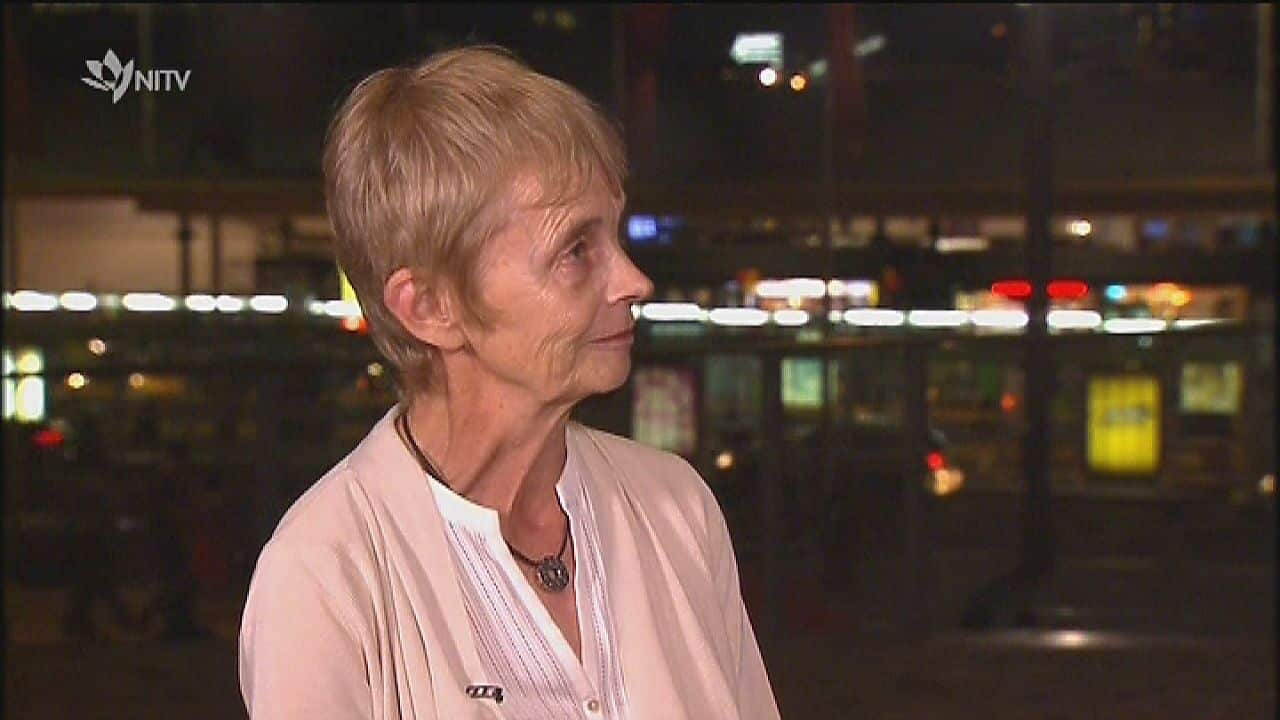In front of a packed crowd in Sydney's Redfern Community Centre, Wirra man and Australia's first Indigenous Senior Counsel Tony McAvoy opened the night with a decisive plan for treaty.
"It is achievable that within the next few years, that we will have set a framework for treaties to be entered into by First Nations," says Mr McAvoy.
"I think the time is now and I don't think we should defer it," he said to applause front the audience. Mr McAvoy has drafted a charter for an Assembly of First Nations people.
Mr McAvoy has drafted a charter for an Assembly of First Nations people.

One of the speakers at the forum in Redfern: SC and Wiri mam, Barrister Tony McAvoy. Source: The Point
He wants to see the creation of an assembly that is a truly representative body, debating and passing resolutions much like the United Nations General Assembly. This body would negotiate on behalf of all First Nations people the terms of a treaty - at both a state and federal level.
Mr McAvoy hopes the Assembly will form and meet as early as June this year in Darwin.
His plan was just one of many in a wide-ranging two-hour discussion, open to the public and tasked with analysing the best way forward for a treaty. The main question revolved around whether constitutional recognition and a treaty were compatible, the timing of a treaty, how treaty can lead to self-determination, and the need for treaty before a referendum on a Republic.
The main question revolved around whether constitutional recognition and a treaty were compatible, the timing of a treaty, how treaty can lead to self-determination, and the need for treaty before a referendum on a Republic.

Narungga elder and Aboriginal advocate: Tauto Sansbury. Source: The Point
Alongside Mr McAvoy, the forum discussion was lead by a panel of Indigenous leaders from around the country, including Narrunga elder Tauto Sansbury; Awabakal man, NTEU A&TSI chair Terry Mason; Stronger Smarter founding chairman Dr Chris Sarra; and Yolngu elder Yingiya Mark Guyula, who travelled from remote Arnhem Land in the Northern Territory.
The rise of the treaty movement at the expense of the Recognise campaign was a popular topic throughout the night. Early last month unanimously voted to reject the federal governments plans for a referendum on constitutional recognition, and called for the state government to resource a treaty process instead. Australia is currently the only Commonwealth country that has not signed a treaty with it's Indigenous people.

Awabakal man, Terry Mason. Source: The Point
Panellist Terry Mason was present at the Victorian meeting and spoke last night about the need to learn from this process. He says that the wording of any treaty resolutions are important to get right.
"They used the term 'Sovereign people', not 'Victorian Aboriginal people', in the meeting, because they are not owned by the Victorian government" he said.
He also believes there shouldn't be a rush towards setting a date for treaty, but rather genuine grassroots consultation.
Yingiya Mark Guyula is currently running on a treaty platform in the upcoming Northern Territory election in the seat of Nhulunbuy. He gave a powerful speech about the need for self-determination for the Yolngu people, which he believes has been eroded by government policies like the Northern Territory intervention.
"Since the intervention was introduced ... our system of law is being pushed aside" he said. "We are being left to become dependent and accept the priorities of the outsiders."
"We are being left to become dependent and accept the priorities of the outsiders."

Yolngu elder Yingiya Mark Guyula. Source: The Point
"Since the interventions we have experienced the highest rates of suicide ... our people are locked up at a rate of six times those of black men in South Africa."
He believes a treaty will resolve many of the problems in the Northern Territory.
“It is self determination and self government, or poverty, exile and death ... we need treaty", he said.
While the majority of the speakers and audience were disparaging about the Recognise movement, the last speaker Dr Chris Sarra took a more moderate approach.
Watch: crowds gather in Redfern to talk treaty
"We're still not at a place where our humanity is acknowledged in an honourable way," said Dr Sarra.
“I don't really want to get into a conversation about where it's one or the other, I think we can have both"
After the official speeches, an hour-long heated Q&A session with the audience revealed a wide-array of stances and opinions on how a treaty should be initiated.
“Treaty means it's the end of a war, but we're not on the losing side, we're on the winning side! We should not settle for some small thing,” said Roxley Foley.
“We should not accept any treaty unless it's a treaty of their surrender!” Others had more straight forward considerations.
Others had more straight forward considerations.

Source: The Point
“I can only hope ... that you can engage with the local land councils in this process ... that's where the true power is, and it would be silly if you don't tap into those existing power bases,” said one community member.
RELATED STORIES:

Chris Sarra: We need to turn rhetoric into reality

Source: The Point




